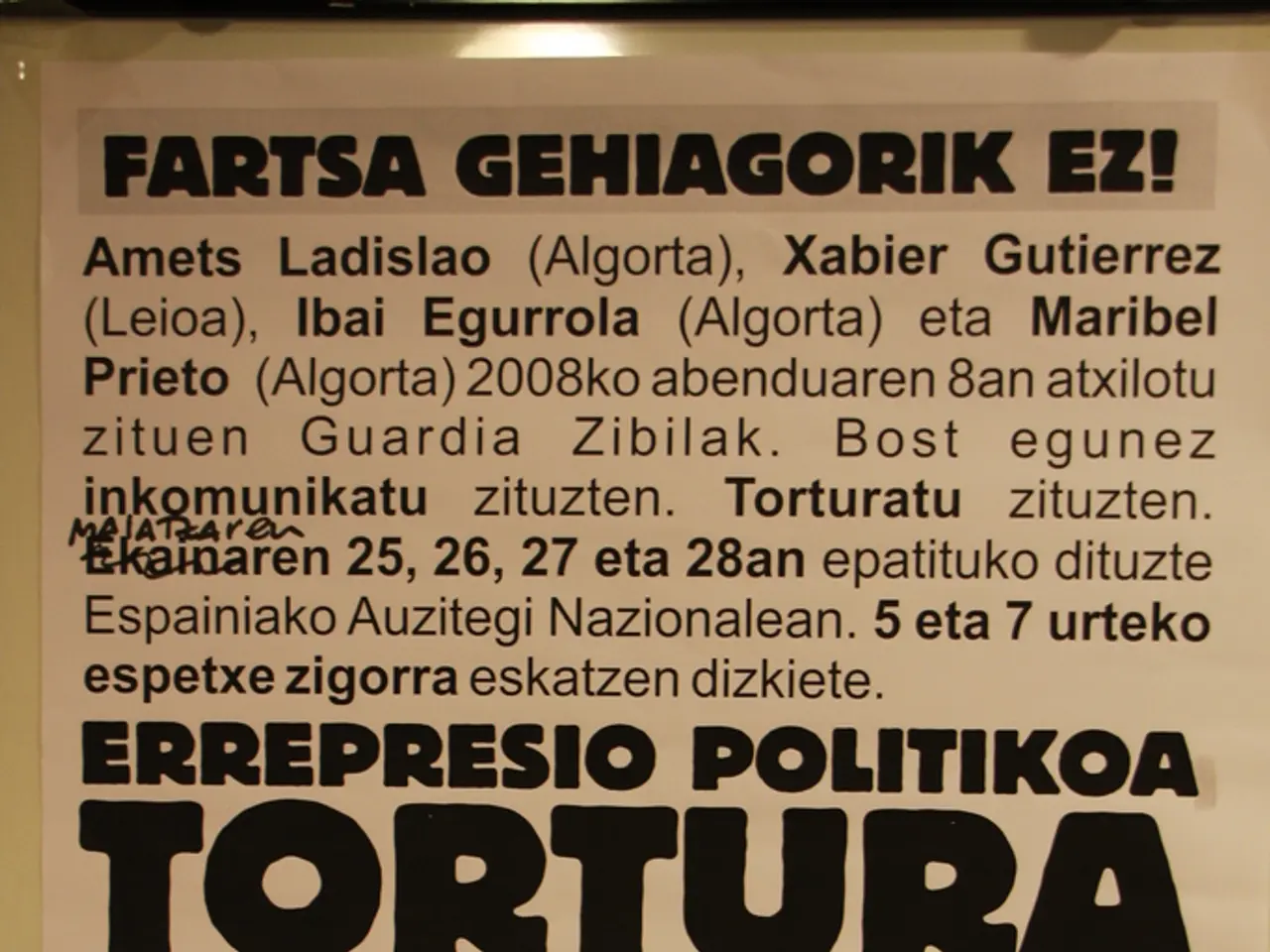Molotov cocktail revealed in Torre Pacheco
In the heart of the Campo de Cartagena region, Torre Pacheco has become a focal point for concerns about the impact of Spain's agro-industrial model. Over the past 25 years, the town has seen its neighborhoods deteriorate, with petty theft and drug trafficking becoming all too common among some of its young people.
This sad state of affairs is a consequence of the town's reliance on an unsustainable agro-industrial model. The working and living conditions of migrant workers, who form a significant part of the town's workforce, are poor. The agro-industrial model in Torre Pacheco, which is part of the Made in Spain agricultural brand, is unsustainable and relies on the precarious labor of migrant workers.
The conditions imposed by large supermarket chains have made the poorly paid labor of migrant workers even more structurally necessary for the sector's survival. This precariousness, combined with the daily experiences of discrimination, segregation, and social contempt faced by the second generations of immigrants, born and raised in Torre Pacheco, has led to a sense of disenfranchisement and desperation.
The recent disturbances in Torre Pacheco were sparked by an assault on a local resident by a man of Moroccan origin. These incidents were fueled by extreme right groups on social media, with similar incidents occurring in various countries across Europe. The far right in Torre Pacheco parasitizes and fuels unrest to gain votes, and their communication strategy often prevails due to the simplicity and repetition of their messages, combined with a masterful use of social media.
Neither school nor access to employment serves as a path to social inclusion for the second generations in Torre Pacheco. This has resulted in more poverty, a higher risk of exclusion, more unemployment, and increased school dropout rates. The situation in Torre Pacheco is not unique, as similar issues are present throughout Spain in places like Alcalá de Henares, El Ejido, Salt, Mataró, or Piera.
Andreu Domingo and Jordi Bayona have warned that the French banlieues are not so far from Spain's current situation. The convergence of xenophobia, migration, and the far right in Torre Pacheco calls for a collective response, based on a strong alliance between administrations, social organizations, civil society, the media, academia, and each and every individual. The battle of the narrative needs to be rearmed to counter the far right's influence, and it's crucial not to focus solely on the far right, but also on addressing the root causes of the first two elements of the Molotov cocktail (precariousness and racism).
The early signs of the problems in Torre Pacheco were seen in the racist incidents in El Ejido in February 2000, which included a "Moor hunt" and destruction. Torre Pacheco is not a new symptom of changing times, but rather a result of a model that has been evolving for decades. The unsustainable agro-industrial model in Torre Pacheco has both environmental and social implications.
As we look to the future, it is clear that addressing the issues in Torre Pacheco requires a comprehensive and holistic approach. Only by addressing the root causes of precariousness and racism can we hope to create a more inclusive and equitable society for all.
Read also:
- Impact of Alcohol on the Human Body: Nine Aspects of Health Alteration Due to Alcohol Consumption
- Understanding the Concept of Obesity
- Lu Shiow-yen's Challenging Position as Chair of the Chinese Nationalist Party (KMT) Under Scrutiny in Donovan's Analysis
- Tough choices on August 13, 2025 for those born under Aquarius? Consider the advantages and disadvantages to gain guidance








